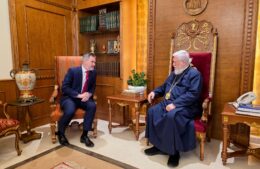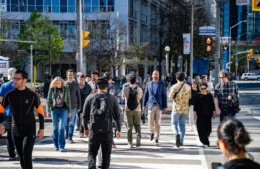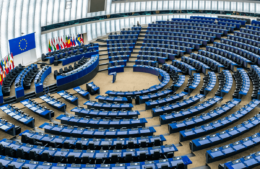Ancient Armenian church in Diyarbakir at risk in Kurdish uprising
- (0)
Ancient Armenian church in Diyarbakir at risk in Kurdish uprising –

by Hannah Lucinda Smith
The Times
The caretaker of the ancient Armenian church of Surp Giragos listenedhelplessly as, on the other side of the barricades, an explosion blewout the windows of his building and echoed through the narrow streets.”There were clashes around the church, but they had stopped in thepast few days,” Gaffur Turkay told The Times.
Surp Giragos, which was closed during the Armenian genocide of 1915and reopened in 2011, is caught in the middle of an urban war, here inthe historic city of Diyarbakir, the de facto capital of theKurdish-majority southeast of Turkey. The security forces are tryingto quash an uprising led by fighters linked to the PKK, a Kurdishseparatist militia.
Most of Sur, the neighbourhood within the Unesco-listed city walls,has been under lockdown for the past month. Surp Giragos is behind theblockades, as are dozens of mosques, ancient bath houses and coachinginns. Extensive damage has already been wreaked on many of the oldbuildings.
Mr Turkay has been unable to reach the church to check the damagesince the curfew began. Today, he and the two dozen others who make upDiyarbakir’s tiny Armenian Christian community will have to beginOrthodox Christmas celebrations in their homes, rather than under thesplendour of Surp Giragos’s arches. “People will visit each other,give presents, but we can’t do anything about this situation,” MrTurkay said.
The Armenians in southeast Turkey are descendants of survivors of the1915 genocide, in which 1.5 million Christians were massacred anddisplaced as the Ottoman Empire crumbled. It is a chapter thatcontinues to traumatise and divide the country. Most of the killingswere carried out by Kurdish soldiers on the orders of Ottomangenerals, although many Armenian children were sheltered bysympathetic Kurdish families, and then raised as Muslims. The Kurdishsoutheast has made efforts to integrate and support the Armenianrevival, but many Turks still deny that the genocide happened.
In recent years, as the grandchildren of those converts haverediscovered their roots, some have chosen to return to Christianity.
Armen Demircian is another who was brought up as a Muslim, andconverted to Christianity when he discovered that his father was agenocide survivor. “My grandfather and three uncles were massacred,but a Kurdish family saved my father, who was four years old,” hesaid. “They hid him in their house, raised him, and treated him like ason. Until a certain age I felt Kurdish, but after I found out, Iwanted to live as an Armenian.”
In southeastern Turkey, the Armenians are once again trapped in themiddle. “If this war extends and gets worse, it will destroy the Kurdsand the Armenians,” Mr Demircian said.
“For now we are stepping back and watching.”


















